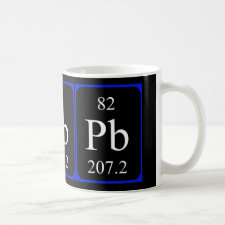
Authors: Mishra S, Verma N
Article Title: Surface ion imprinting-mediated carbon nanofiber-grafted highly porous polymeric beads: Synthesis and application towards selective removal of aqueous Pb(II).
Publication date: 2017
Journal: Chemical Engineering Journal
Volume: 313
Page numbers: 1142-1151.
DOI: 10.1016/j.cej.2016.11.006
Alternative URL: http://www.sciencedirect.com/science/article/pii/S1385894716315698
Abstract: Novel Pb(II) ion-imprinted and carbon nanofibers (CNFs)-grafted highly porous (~475 m2/g) polymeric beads (~0.5 mm) were prepared by the surface ion imprinting technique. The allylthiourea precursor-based polymeric beads were synthesized by suspension polymerization, in which CNFs were in-situ mixed during the polymerization reaction before the curing step. The prepared ion-imprinted and CNF-grafted polymeric (CNF-IIP) beads were used for the efficient and selective removal of Pb(II) ions from aqueous solution by adsorption. The adsorption capacity of the CNF-IIPs for Pb(II) ions was determined to be ~47 mg/g. The material exhibited high selectivity for Pb(II) in the presence of the Ni(II), Zn(II) and Cd(II) competitive ions, with the selectivity coefficients for the Pb(II)/Ni(II), Pb(II)/Zn(II) and Pb(II)/Cd(II) in binary systems determined to be ~48, 28 and 14, respectively. The synthesized CNF-IIP adsorbents were easily regenerated by acid treatment and used in five adsorption/regeneration cycles. The method described in this study can be applied for the development of the similar CNF-IIPs for the selective removal of various toxic metal ions present in industrial effluents
Template and target information: lead ion, Pb(II)
Author keywords: Surface ion imprinting, Ion-imprinted polymer, Carbon nanofibers, Porous beads, Pb(II) adsorption



Join the Society for Molecular Imprinting

New items RSS feed
Sign-up for e-mail updates:
Choose between receiving an occasional newsletter or more frequent e-mail alerts.
Click here to go to the sign-up page.
Is your name elemental or peptidic? Enter your name and find out by clicking either of the buttons below!
Other products you may like:
 MIPdatabase
MIPdatabase









